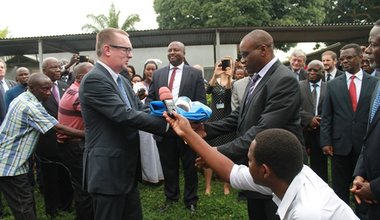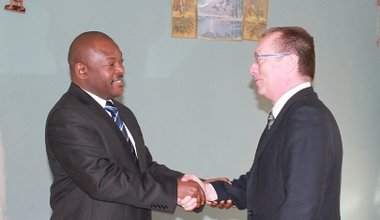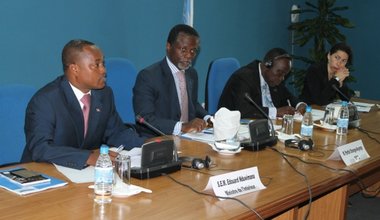UN official denounces restrictions on political rights ahead of Burundian polls
7 March 2014 – The United Nations human rights chief today voiced concern at the increasing restrictions on civil and political rights in Burundi, following a series of violent acts by the ruling party’s youth wing and the disruption of public meetings organized by opposition parties.
“I am concerned that restrictions have increasingly been imposed on freedom of assembly and on the press over the past few months in Burundi,” High Commissioner for Human Rights Navi Pillay said in a news release.
Recent attacks by the ruling party’s youth wing, including the reported killing of an opposition youth leader on 19 February, were also hugely worrying, especially in the lead up to the 2015 presidential elections, she added.
At least 19 violent incidents involving members of the youth wing, known as Imbonerakure, have been documented since the beginning of the year, including beatings, acts of extortion and intimidation of political opponents, and the prohibition and disruption of political meetings.
The latest incident occurred on 28 February, when Imbonerakure members reportedly beat up members of an opposition party’s youth wing in the village of Busoni, in the Kirundo province.
“These violent acts threaten to have a negative impact on the exercise of political rights and freedoms in Burundi, and there is real risk that opposition youth groups may start to retaliate, creating a dangerous downward spiral of violence,” Ms. Pillay said.
“I call on the Government to publicly condemn these violent acts to ensure that those responsible for acts of violence are held accountable. This is essential if the rising political tensions in the country are to be defused,” she said.
The High Commissioner also expressed concern that the police, acting on instructions from administrative authorities, disrupted meetings organized by an opposition party on 18 and 19 February. A workshop organized by the Bujumbura Bar Association in conformity with the new Law on Public Gatherings was also prohibited by the authorities on 18 February.
“The increasing restriction of public gatherings could severely narrow the democratic space ahead of the elections,” she stated.
In addition, Ms. Pillay drew attention to the potentially negative impact on press freedom of a new medial law that requires journalists to reveal their sources of information when they report on a number of issues ranging from state security to public order.
“Next year’s elections will be a key test for Burundi,” she added. “Continued political violence is a threat to the democratic process in a country which is still slowly recovering from a devastating protracted civil war.”
 UN
UN





